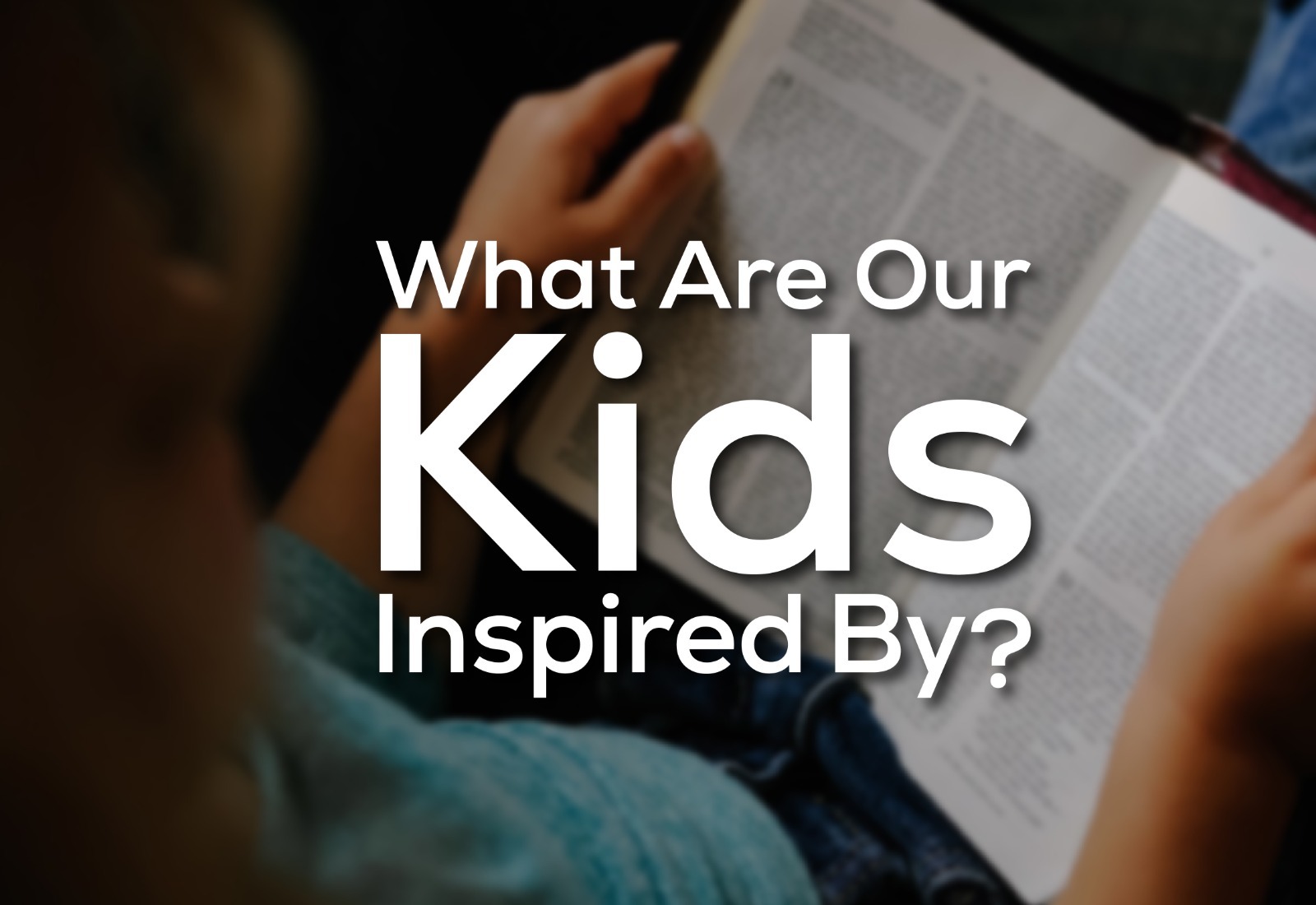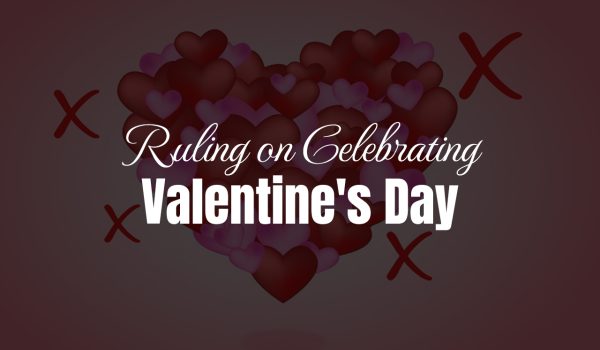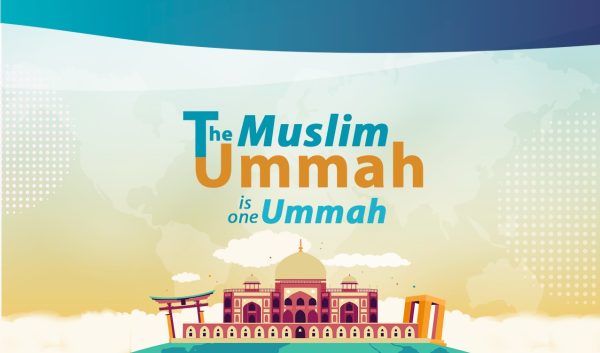Whenever I asked my four-year-old what she wanted to be when she grew up, she had a plain and straightforward answer – a follower of the Prophet ﷺ. To her, he ﷺ was the only person worthy of admiration and being followed. But recently, her conversations began changing from “How did RasulAllah ﷺ eat?”, “I am sitting like RasulAllah ﷺ”, or “I cleaned my plate like RasulAllah ﷺ!” to: “I will finish my food like Cinderella”, and “If I eat all my apples I will be pretty like Cinderella.”
What at first seemed like an innocent infatuation with a childhood fairytale character soon got me worried. This replacement of idealism was not a small matter. In her innocent mind, a fairytale character dancing with a prince was becoming more inspiring than the best of all creation. When I dug deeper into the matter I learned she was picking up the admiration for Cinderella from a close acquaintance, whose parents used a fairytale princess to inspire her child to eat, dress up, stay clean, etc. This momentarily made me forget about my own child and a heartache arose in my chest for the children of this Ummah.
Is it possible that we are raising an Ummah inspired by fairytales and superhero characters? An Ummah, whose history is full of heroes of divine knowledge (Prophets) and their followers (Sahabas), has forgotten the importance of bringing the best characters into the children’s lives and has replaced the divine idealism with the fictional superhero cults of the modern world. Is this a problem? Should we be worried? Isn’t the impact of these fictional characters alarming while rearing a Muslim child? Or does it even matter who we idolize from a young age? Stories are important. They can not be taken lightly. What stories we tell our children form the structure of our society.
Heroes and role models are an integral part of our society. They are an integral part of education, how we view the world, and what we inspire to be. Infact, superheroes or some sort of heroes have always existed in all sorts of cultures. Greek, Norse, Egyptian, Celtic, Hindu and all other pagan mythologies are a representation of the need to believe in someone as our saviors and role model. They represent the need to believe in something bigger than ourselves(supernatural), to be in awe of something, to idolize something. Pagans societies in the past came up with their own superheroes in the shape of gods, demi-gods and the demons they fought against, very much like the superhero culture of a superhero fighting a villain. The innate human nature to believe in something bigger than themselves in a secular world began to be replaced by Marvel and DC heroes. The transition from traditional to secular society gave us a secular set of superheroes. These superheroes fulfill the void left for the innate need to believe in a higher power, the bigger than themselves being.
Can this fit into not only the Islamic, but any of the Abrahamic religions worldview? We believe in a real power bigger than ourselves, our Savior, our Protector, Our Creator, Allah (عَزَّوَجَلَّ). As for our role models, the stories Allah (عَزَّوَجَلَّ) himself narrates to us from the past in the Qur’an and other divine books sure give us our very own real set of them: Adam, Ibrahim, Nuh, Musa, Isa, Dawood, Suleiman, Yusuf, Yaqub, Yahya, Zakariyya, Saleh, Lut (Alaihimussalam), along with Luqman, People of the Cave, and many more. And then Allah (عَزَّوَجَلَّ) laid out in front of us the entire life of the best human in the world to take after.
لَّقَدْ كَانَ لَكُمْ فِي رَسُولِ اللَّهِ أُسْوَةٌ حَسَنَةٌ لِّمَن كَانَ يَرْجُو اللَّهَ وَالْيَوْمَ الْآخِرَ وَذَكَرَ اللَّهَ كَثِيرًا
There has certainly been for you in the Messenger of Allah an excellent pattern for anyone whose hope is in Allah and the Last Day and [who] remembers Allah often.
[Surah Ahzab: 31]
The two contradictory role-model structures are the representation of Haq (truth) and Batil (falsehood) in this dunya. Whether it’s the traditional modern society, the pattern of Batil remains the same. The misguidance comes from the same being: Shaitan, Iblis. Human psychology demands belief in super-beings. Shaitan used this innate need to misguide people in the past with mythologies (fake gods and demi-gods) and now continues to misguide with yet another set of stories, just far more graphic and captivating. For many young people, superheroes have displaced traditional beliefs. The superhero role is similar to the pagan structure of the past. These new forms of gods speak the truth for their audience and present different models of behaviors, values and norms of an increasingly diverse 21st-century society. In the words of Robert Mcgracy, “Superheroes have become the new gods and Marvel is a new brand of religion in a secularizing post-Christian society.” The legacy of Shaitan to create fake super-beings and role models has been carried into the modern world.
Superheroes having similarities with pagan religions doesn’t come as a surprise. Satan is progressive and he employs innovative methods to misguide humanity. His purpose remains the same but he advances and changes his methods as humans progress and change. Traditional paganism (old school shirk) seems backwards to a modern man who is more driven by scientific evolution and the values introduced by it. So, this entertainment becomes the source to keep up the advancement of misguidance.
As a tool of Shaitan, Marvel and other comic companies have used these heroes to promote secular values. Marvel, the biggest superhero comic brand, consistently portrays god characters in their movies. It shows that they are all not heavenly beings who present themselves as good, but are secretly awful — usually evil. It’s clear that Marvel is setting up a conflict between humans and gods to be at the forefront of its next big storyline. The conflict is evident from many comic tales.
In “Loki,” the villain someone who remains a supposedly all-powerful, all-knowing being whose primary goal is to keep order in time and space by making sure that all events go according to his cosmic plan, and erasing anyone from an existence who deviates from that plan. Then it’s exposed that he’s a time-traveler named Kang who kidnapped people and brainwashed them into joining his time cop force to enforce his preferred timeline – ‘imposing’ a plan by using supernatural powers.
In “The Eternals,” The Celestials are immortal gods who created every living thing in the universe and say they created the angelic Eternals to protect the humans of Earth from demonic Deviants. In reality, they created the Eternals to help humans evolve so the humans could help the planet give birth to a new Celestial — destroying the Earth in the process.
In “Moon Knight,” the prophet of the god, Ammit is the main villain. Ammit wishes to return to Earth to kill everyone who will one day become evil before they have a chance to commit that evil. She’s opposed by Konshu, a god who abuses and manipulates Marc Spector/Steven Grant — (two sides of a man with a split personality) into being his avatar to stop her. In the process, Konshu becomes nearly as brutal as Ammit until Marc and Steve stand up to him.
In “Thor: Love and Thunder,”the villain is Gorr, the god butcher. He is a pious believer in his god before all his people are wiped out and his daughter dies of starvation while his god does nothing. When Gorr meets his god, he laughs and tells him his life is meaningless. So, in revenge, Gorr kills him and goes on a quest to kill all the gods. When Thor tries to stop him, he tries to enlist the aid of other gods who turn out to be self-absorbed hedonists, and refuse to aid him as long as they are safe.
It seems the super-hero culture is as popular amongst the Abrahamic religions as it is in the secular world. Three basic beliefs – the superpowers of Allah (عَزَّوَجَلَّ), the perfection in the role model of Muhammad ﷺ, the moral code and the way of life defined by Islam – are subtly challenged by super-hero obsession. Superheroes have become the prophets of the new religion. They bring their morality and set of values. There are a lot of different superheroes out there and many of these heroes were created or later changed according to cultural trends of the time. For example, the creation of Superman Comics in 1938 was an attempt to provide hope for society after the difficulties of the Great Depression and impending World War II. Now this is a perfect medium to familiarize the value of modern godless society. Characters of homosexuality e.g Batwoman – sexualized female superheros, and associated power with vulgar clothing. Whatever value needs to be popularized, they have the most attractive and popular medium.
When a society with a strong belief in Muhammad ﷺ as a true role model questions a child what they want to be when they grow up, and they answer – ‘superman’, that should worry us. We are replacing their deep love and connection with RasulAllah ﷺ with something that will take place of almost a religious importance in their life. When you come across children willing to be bitten by spiders to become spiderman or a seven-year old practicing grabbing things with his “spider web” we need to understand the effect of exposure to this culture is not innocent. Getting rid of fairytale culture for its messed up sense of reality was one thing but to fight an entire cult of Marvel and DC is a task we need to start considering. Are the role models of secularism becoming our children’s new role models?
The fairytale and superhero culture may seem innocent or the gravity of its impact may differ for everyone. But it has replaced our heroes at one level or another. Homes that should be filled with tales of the sacrifice of Ibrahim, dawah of Nuh, patience of Ayub, beautiful story of Yusuf (Alaihimussalam) are instead filled with superman themed rooms. The formative years of our children’s life in which the deep love of RasulAllah ﷺ as our role model needs to be instilled, we are giving them other unrealistic role models of fairy-tales, ben ten, and batman. The Sahaba built their children’s identity through the stories of RasulAllah ﷺ.
Saad ibn Waqas is from the ashra-e-mubasharah, one of the 10 given glad tidings of Paradise. His son Muhammad would say that our father would teach us the battles of Rasul Allah ﷺ, he would teach us the Seerah of RasulAllah ﷺ and he would tell us that these are the traditions of your fathers, so study them.
Shouldn’t the early years of their life be spent forming the pegs of love for Muhammad ﷺ, Ibrahim, Musa, Isa (Alaihimussalam) and other prophets? Shouldn’t the stories that surround our homes be stories of the marvelous humans which stood against the entire society. Shouldn’t we be inspiring them to be more like Abu Bakr and Uthman (رَضِيَ ٱللَّٰهُ عَنْهُ) and other Sahabas? Shouldn’t they be inspired by real life stories of justice in the time of Umar (رَضِيَ ٱللَّٰهُ عَنْهُ)? How are we comfortably accepting this level of shirk in our homes?
When a 7-year-old was told that the planets, created by Allah (عَزَّوَجَلَّ) were named after Greek and Roman gods, she went into a state of shock and came up with her own list of names for the planets. That’s the sensitivity we need to harbor regarding shirk, let alone take it as a norm in our society in the form of entertainment. We are allowing our children to take morality from a source different from Divine Knowledge and allowing them to be comfortable with the ideas of shirk. It’s something that should concern us.
Does Islam need a representation from Marvel? Should we be mapping our children’s minds especially at an early age with such a futile and corrupted source? We need to realign and refocus. I hope and pray we are able to do so, In Sha’Allah.











